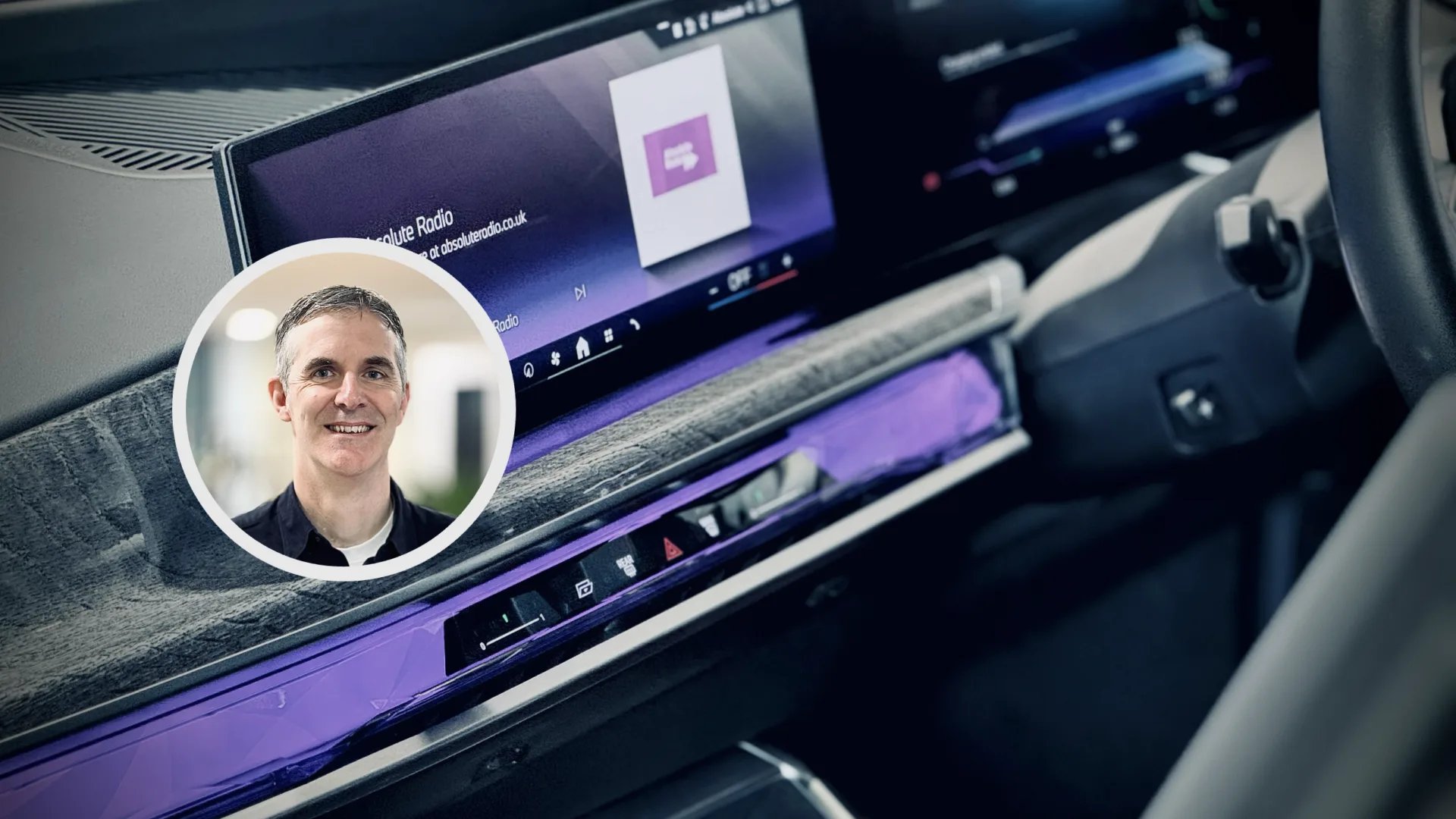“Appoint someone with clear responsibility and KPIs for station metadata”

Laurence Harrison is chief partnerships officer for Radioplayer Worldwide.
Radio World: You and others have preached the importance of good metadata management for stations to stay competitive in the amazing new dashboards of today. How well do you think the message has sunk in?
Laurence Harrison: The importance of robust metadata management cannot be overstated, especially in today’s visually enhanced dashboards. It’s not just about sound anymore; it’s about delivering a complete and engaging radio experience. At Radioplayer, we’ve championed this cause for years.
While many broadcasters recognize the need for quality metadata, there’s still considerable room for improvement. We often encounter instances where stations suffer from incorrect logos, missing now-playing data or inconsistent branding in-car, which can detract from the listener experience.
This underscores the critical need for broadcasters to prioritize metadata accuracy and consistency. Radioplayer is here to support broadcasters in enhancing their in-car presence and ensuring a seamless user experience.
RW: What’s a good example of a feature or capability that metadata makes possible but that broadcasters may not be taking full advantage of?
Harrison: A “more-like-this” feature is a good example. If a driver or passenger is listening to a radio station in the car and likes the station, the show, the presenter or the song, they can click on a “more” button to do a deeper dive into that station brand and content. The “more” content they are presented with could be sister stations from the same group, catch-up shows from the one they’re listening to or related podcasts from the presenter or about the artist that’s playing.
This feature not only keeps listeners engaged but also strengthens the station’s brand identity. It’s a prime example of how metadata about the great radio content enhances the overall listening experience and promotes deeper audience engagement.
RW: What resources would you recommend for engineers and managers to learn about best practices and healthy metadata management?
Harrison: Well, I am biased, but the first thing you can do is speak to Radioplayer. Whether you’re already part of our network or exploring integration, our team ensures that metadata flows seamlessly to leading car manufacturers like VW Group, BMW, Renault and NIO. We simplify the process, even for smaller stations, through tools and guidance tailored to their needs. Additionally, industry resources from organizations like WorldDAB, RadioDNS, EBU and NAB provide valuable guides and FAQs to further enhance metadata practices. And do challenge your streaming providers: Ensure they deliver in-stream metadata.
Metadata displayed in BMW vehicles via Radioplayer. Harrison says detailed track info, artist image and album art transform radio into a richer, more connected listening experience.
RW: What do you think is the most common mistake or error that broadcasters make?
Harrison: Metadata is vital, so treat it with that level of importance internally. When your station is off-air, you’ll hear for sure. But who notices — or even cares — when your logo or artist image is missing? Often, it’s shrugged off with a casual, “Oh well, not my responsibility.”
To prevent this, appoint someone with clear responsibility and KPIs for station metadata. Without dedicated oversight, outdated metadata or missing now-playing data can easily go unnoticed. Make metadata a priority and ensure it stays front of mind.
RW: Do you have a favorite tip, trick or best practice?
Harrison: Have a single, integrated approach to metadata for all your different connected products. We often see examples of stations that are clearly focusing on great metadata for their mobile apps or websites but they haven’t thought about using the same metadata for the car. Although there are many great automotive features that could be enabled by specific metadata for the car, all the base-level metadata should be the same: station logos, now-playing, stream URLs. You then just need to work with a partner like Radioplayer to maximize its impact on car dashboards.
Another instance of Radioplayer metadata in BMW.
RW: You made an announcement in October of a partnership with NPR. What does that entail at the network, and how are stations affected by it?
Harrison: Our partnership with NPR will enable their member stations to deliver a richer and engaging experience to listeners in cars with the providing of their metadata to our automotive partners. Using Radioplayer’s technology and APIs, NPR stations can provide an enhanced in-car radio experience that aligns with the expectations of modern drivers, ensuring radio remains a vital and engaging part of the connected car ecosystem.
RW: What else should we know?
Harrison: Metadata is more than a necessity; it’s a cornerstone of innovation in radio. As technology evolves, staying ahead with robust metadata will enhance your station’s interactive features and keep you at the forefront of digital broadcasting.
We prioritize direct integration with broadcasters, empowering them to manage and update their metadata through our MyRadioplayer portal. We offer a range of metadata tools designed to support broadcasters of all sizes, including automated logo resizing and real-time now-playing data capture using AI technology. Our goal is to enhance radio station brand engagement and listener satisfaction in connected cars, making the process seamless and effective for our partners.
[Related: Read a Radio World ebook on “Recipes for Visual Display.”]